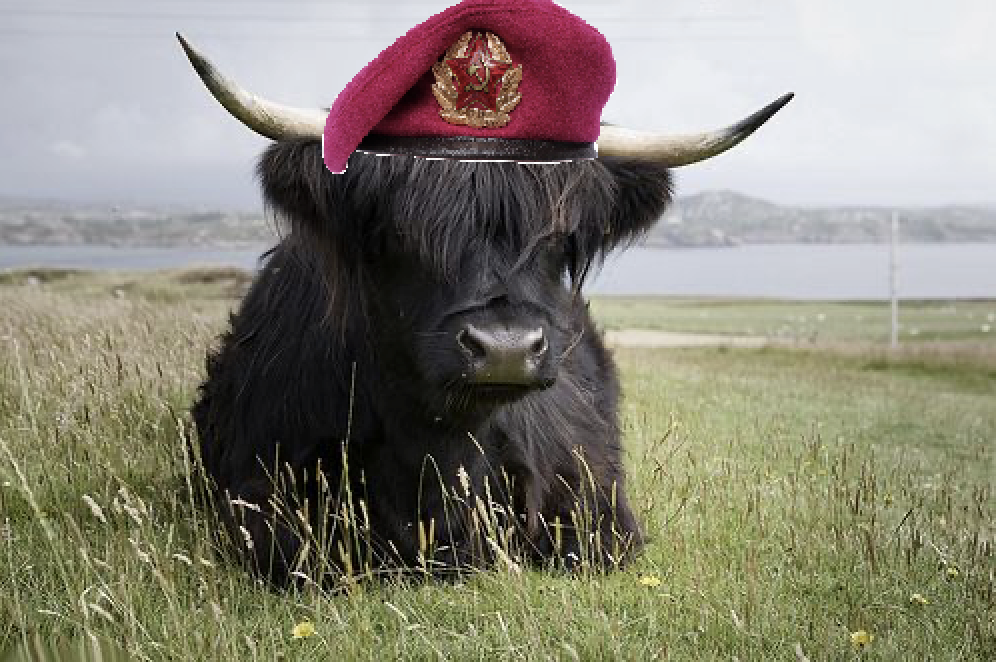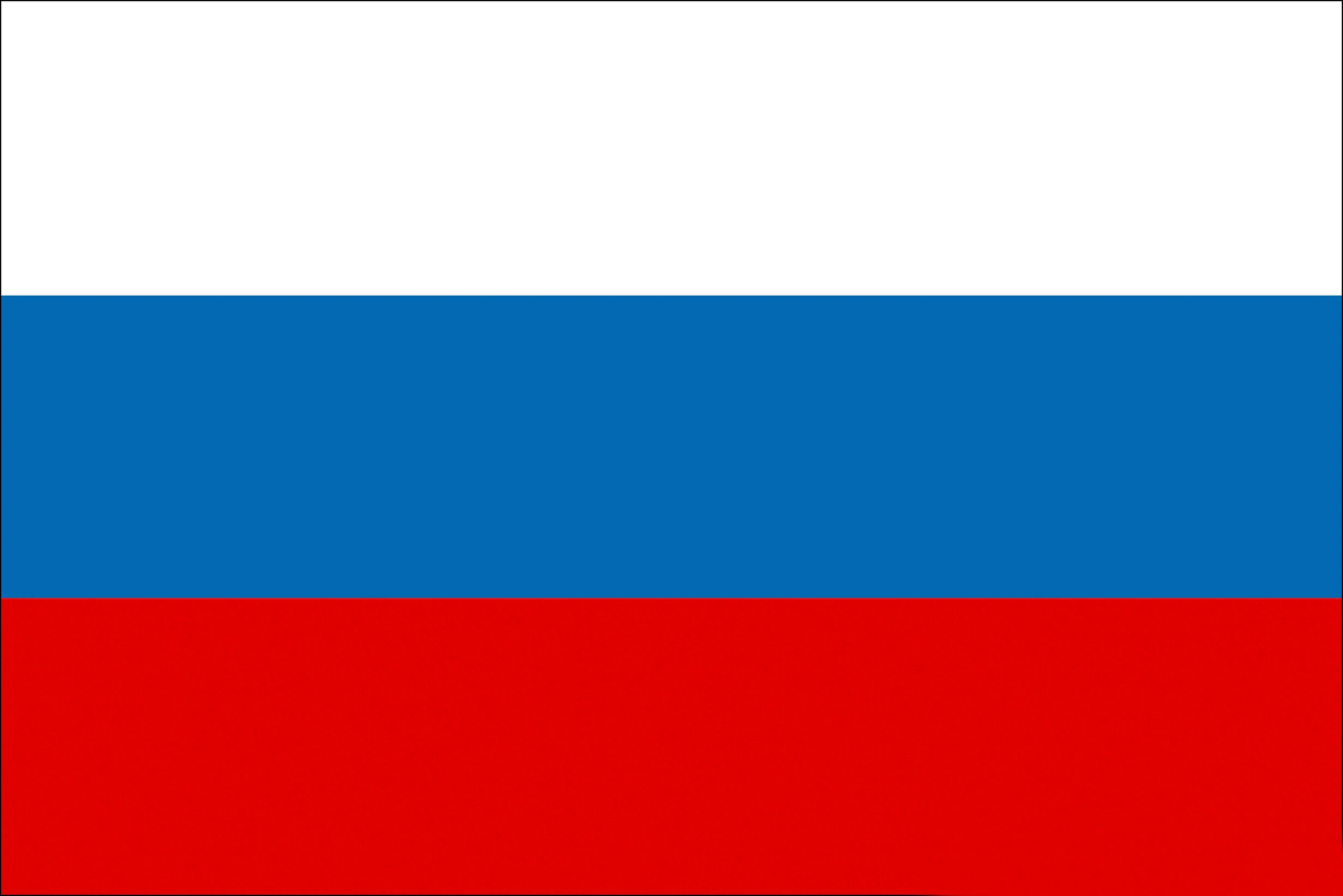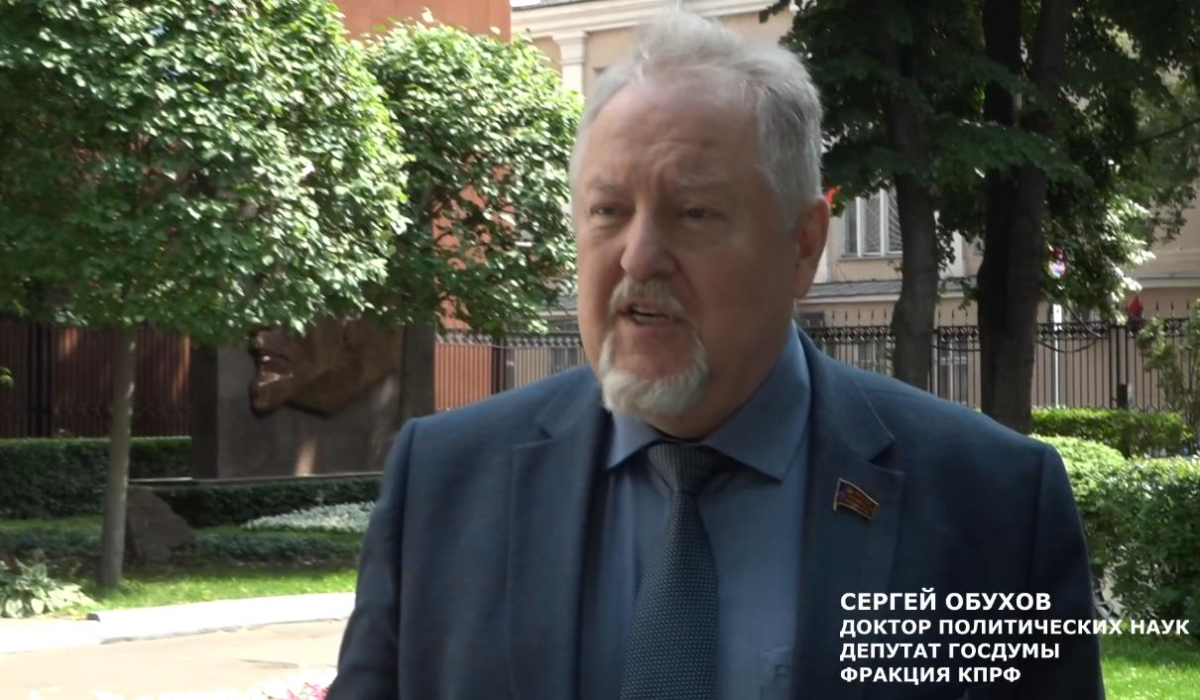Deputy Chairman of the State Duma Committee on the Development of Civil Society, Public and Religious Associations, member of the Communist Party of the Russian Federation faction, Doctor of Political Science Sergei Obukhov told Krasnaya Liniya why the resolution “On the restoration of the full historical justice in relation to Joseph Vissarionovich Stalin” was adopted at the 19th Congress of the Communist Party of the Russian Federation, as well as about the great social significance of such a decision, writes the publication “KPRF.ru”.
Sergey Obukhov:
"Today we are talking about the most powerful public rehabilitation of Stalin’s name in the mass consciousness. The results of sociological studies show that two thirds of our citizens have a positive assessment of the role of Joseph Vissarionovich. But if we recall, for example, the period when the CPRF was just beginning the fight to restore the historical truth regarding Stalin, then these figures were exactly the opposite. But we managed to prove to society - and these sentiments clearly dominate in it now - that a blatant historical injustice was committed against Stalin. And the entire “mechanism” of negative slanderous assessments of his activities, which was inspired during the years of the so-called “perestroika”, was launched by the “children” of the notorious, “exposing” 20th Party Congress, and “worked” almost flawlessly to this day.
But we ultimately won – in the fight for public opinion about Stalin’s activities, to consider him not a demonic figure of Russian, Soviet history, but, like any other politician and person, who made mistakes and made miscalculations. However, on the “scales of history,” Stalin’s positive results still dominate by a large margin, which, against the backdrop of the current geopolitical and domestic political crises, show where we need to move forward and what solutions are most effective.
Why was it necessary to express a positive assessment of Stalin’s activities today, at the party congress? Because we see how the “party in power” is trying to use Stalin’s growing authority among the people for its own needs. For example, putting forward such a “thesis” about Stalin as “Red Tsar” or “Red Emperor”, which completely obscures the positive role of Joseph Vissarionovich as a communist and successor of Lenin, as the creator of Soviet power, a man who embodied in practice Lenin’s principles of social justice and the victory of labor over capital. And it pays attention only to the “style” of his rule, which, by the way, it so wants to mimic. That, they say, there was a “leader” in the Kremlin back then, and now he rules there - albeit “a little” different.
Therefore, the CPRF had to formulate and voice its position on this issue, remove from the political agenda the “partial rehabilitation” of Stalin, which is what the current “party in power” is proposing to do. And they had to tell the people honestly what Stalin was right about and what he was wrong about. By the way, the basis of our resolution on this issue, adopted at the congress, was the position of the Communist Party of China - with its famous formula of Mao Zedong: Stalin was 70% right, and only 30% wrong.
In adopting our resolution, we proceeded from the fact that both in society and in official politics, a single point of view on this extremely important issue should dominate, and namely, an objective one, which is what the CPRF is proposing. And all the slander leveled at Stalin, including Gorbachev’s myths that he was supposedly “in a state of prostration” when the war began, and later controlled the army only by globe, are absolutely groundless. And they are the sad legacy of Khrushchev’s so-called “closed” report.
That is why the party had to distance itself from such myths and political mistakes of that time, including the clearly unacceptable, from a historical point of view, decision to rename Stalingrad to Volgograd. And at the congress we publicly declared the need to return the historical name to the city where the fate of not only our country, but also the entire Second World War was decided. That is why it should be called exactly the same as it was during one of our greatest victories – Stalingrad.
Our opponents today claim that the communists themselves decided to rename the city in 1961 – what then do they demand from the current authorities? But that is why we openly acknowledged the erroneousness of such a decision at the recent party congress, in order to insist now – and “to the fullest” – on the restoration of historical justice.
But this is only one of the “tactical” reasons explaining why it was necessary to publicly declare the complete and unconditional rehabilitation of Stalin. The “key” thing here is to draw a certain theoretical line under the ideological discussions in society, to record the prevalence of our point of view on Stalin’s personality in the mass consciousness of society. Finally, to openly demonstrate our ideological victory over literally all of Stalin’s overthrowers.
But at the same time, please note, we do not deny other decisions and assessments of past party congresses. We express only our own position on a specific political phenomenon as a party that considers itself the ideological successor of the CPSU. We openly declare - yes, there was voluntarism in Stalin’s actions, he made certain mistakes. However, we completely reject the clearly negative, biased assessment of his role in the history of our state, made within the framework of the intra-party struggle that was waged in those years.
That is why the resonance from the decisions of our congress turned out to be quite broad. Although the attitude of pro-government media towards them is rather negative. But among the general population they are perceived clearly positively, judging by the responses we analyzed.
The representatives of the liberal media – all these “children” of the 20th Congress and the “creators of perestroika” who have not gone anywhere, have thrown a real tantrum. Although it is necessary to understand that the destruction of the USSR, our united Fatherland, began precisely with anti-Stalin and then anti-Leninist rhetoric and the demonization of both leaders of our country. And all these “demonizers” have again surfaced, which is, however, quite natural. Because they feel that they are losing the “battle” for the mass consciousness of the people. The CPRF, with its resolution regarding Stalin, has consolidated its success, its hegemony, the course of development of the country that it proposes. And society responded to a balanced, objective assessment of Stalin’s role in the history of our Fatherland.
Moreover, such a decision of the congress concerns not only the personality of Stalin himself, but also, as far as I understand, the perception of all the processes that took place at that time. And the main one is victory, literally on all fronts: political, economic, ideological. It is enough to recall the successes in the post-war restoration of the country, industrialization, and much more that the country achieved at that time.
Does this mean that by downplaying Stalin’s personality, we are also downplaying the successes achieved during that period? Of course. Because by demonizing the politician’s personality, we are, so to speak, belittling almost all the ideas, achievements, and proposals that were implemented during his rule. Now, for example, the need for a mobilization economy, the mobilization of the entire society for victory in the SVO is obvious. And Stalin’s example in this regard is unique. Without similar decisions, we will not win. The authorities are trying to implement certain elements of strategic planning for a mobilization economy today - in the military-industrial complex, for example. However, the scope of application of such mobilization measures should be much broader.
Look at what is happening in our economy today? The notorious import substitution, for example, resulted only in a reorientation from some markets - in this case, Western ones, to others - Asian ones, and the “dependence” on everything “foreign” remained as before. Stalin had a different approach to solving a similar problem - he directed all the efforts of society, first of all, to ensuring the technological and economic sovereignty of the country: this is the “key” idea of Stalin’s policy. Therefore, when we speak today about a positive assessment of the activities of Joseph Vissarionovich, we rehabilitate, thereby, the idea of strategic planning and technological sovereignty, with the help of which alone it is possible to achieve the intended.
That is why Stalin is, let’s say, ideological sovereignty, which does not mean attempts to survive in the “anteroom of the seven” and the thoughtless use of the narratives of the global community – with the notorious digitalization and techno-feudalism, but successful development along one’s own course, leading to the prosperity of the entire society.
Stalin is the Russian, Soviet civilization, where labor triumphs over capital, and this victory is officially secured. And here are some basic statistics from our days: the balances on the accounts of undistributed profits of 300 thousand entrepreneurs are twice as large as the wage fund. This fact shows that our economic policy is dominated today by the interests of capital, which, in fact, takes away half of the surplus value created by workers. But in the Soviet Union, under Stalin, there was a different ratio: only 20% of profits went to general federal needs, and 80% remained with workers, as well as enterprises that, by modernizing and so on, solved, among other things, social problems.
This is what “the victory of labor over capital” means. This is a radical distribution of the surplus product – in favor of the working man, and not the parasite, the middleman, the speculator, the banker and the usurer. This is the difference. And speaking about the positive role of Stalin, we are also speaking about the rehabilitation of such a principle of distribution. That is, we are returning not just to some political personality, but also to the global guidelines and global policy that stand behind him. Therefore, we insist that these principles, together with Stalin’s rehabilitation, be returned to our everyday life.
And when we evaluate Stalin’s activity in the ratio of 70% to 30%, we understand perfectly well that the “Stalin era” also had tragic mistakes, which the party, by the way, openly acknowledged and overcame. However, while criticizing him for his miscalculations, we call, at the same time, to more actively use all the positives - both from pre-revolutionary history and from the period of the Soviet Union, which was the “peak” of Russian and Russian civilization - for its entire thousand-year path of development.



You are right! You reminded of a spanish speaking belarussian youtuber that explains how their system works. Very impressed by how Belarus socialism works!
Honestly, I am very happy that the russians have plenty of examples of existing socialisms and that the AES and Russian population can actively interact among each other.
Indeed, and another factor is that a lot of people who lived in USSR are still alive today. Everybody has somebody in their family from that time they can talk to. Most of these people have a positive view of USSR and generally prefer it to the way things are today. The type of propaganda against communism that you see in the west is simply not possible to do because of that.
I think this is a perfect example of the quote by Marx; “The tradition of all dead generations weighs like a nightmare on the brains of the living.”
Russia today is the only post socialist country and it’s clear that the culture of the USSR has left an imprint. I know some Russians and it is normal for them to say things such as, “I think it would be better if Russia was communist again”. Now imagine someone in say, Germany saying that about their country lmao.
Time will tell what direction they go but it seems promising from my view.
that’s my read on the whole thing as well
Go ask some older people in rural east germany and they might say it.
did you mistype?
Heh yeah, I meant to write largest and most prominent, my bad comrade